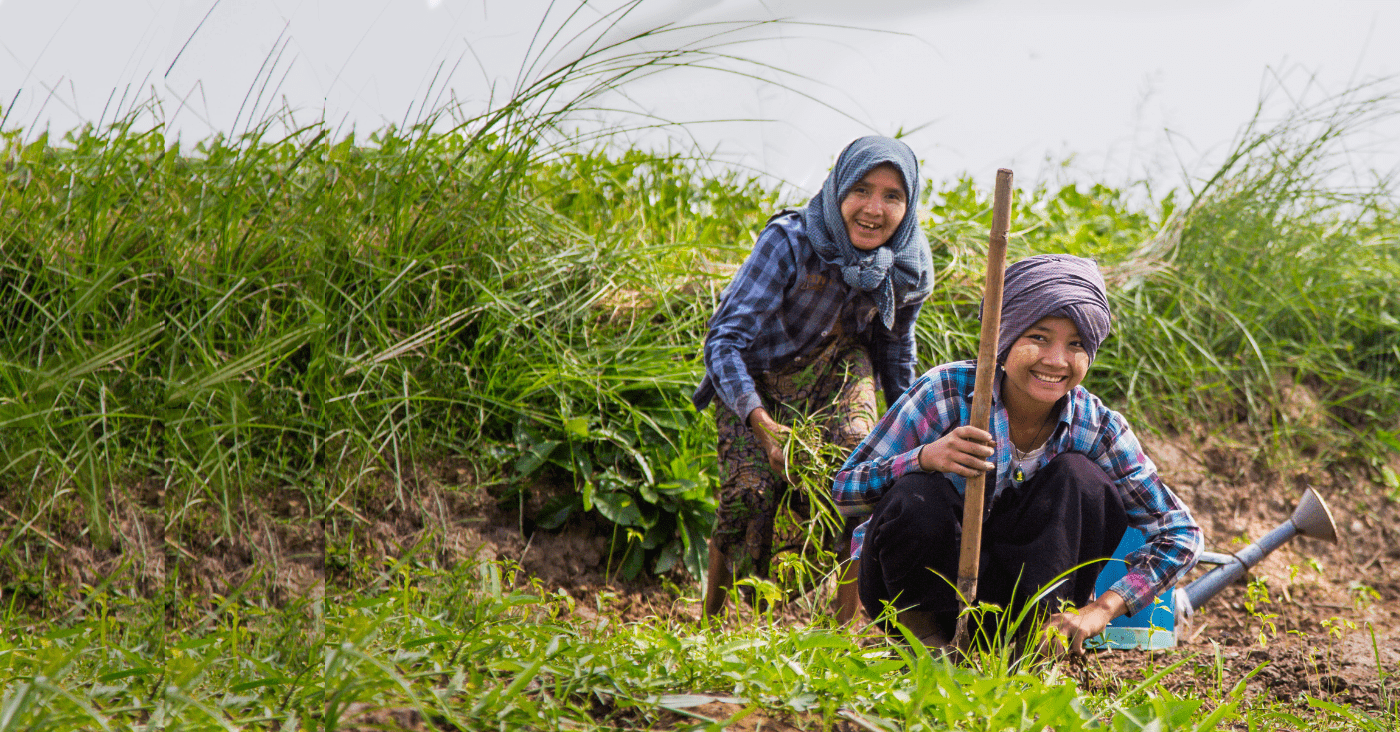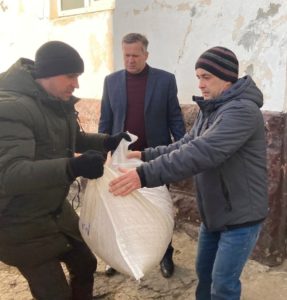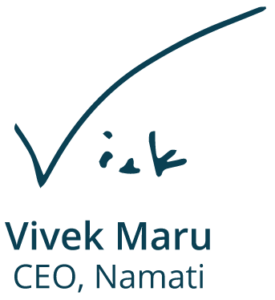Message from the CEO
Dear Friends,
“Not again.” On a clear-skied morning in September 2021, I sat on a bench among a hundred people who live in the shadow of Sierra Leone’s largest iron ore mine. We gathered in an open-air shelter, in the center of a cluster of identical homes that had been erected hastily for families who were forcibly displaced by the mine. The people living in this settlement, our hosts for the day, had lost their land entirely. Others present, who had traveled from nearby villages by foot and motorcycle, still possessed their land but could barely recognize it because of poisonous, orange-hued tailings flowing down openly from the mining site, or because of massive floods and mudslides the mine had caused.
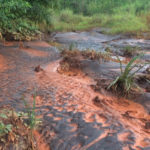
Tailings from Sierra Leone’s largest iron mine flowing onto farmland
These were fighters. Among us were the leaders of an ongoing lawsuit to address violations of the mine’s permit conditions. In 2019, they won a partial settlement requiring rehabilitation of damaged land. But their spirits that day were low. The mine had switched hands from one Chinese company to another; the new company was refusing to accept responsibility for its predecessor’s actions and, we’d found out only recently, had signed a new land lease with local chiefs, for 25,000 acres, at less than $1.50 per acre per year, without the consent of the people whose land it was. Not again, one farmer told me. We can’t let this happen again.
This is what it’s like standing up for justice in our era of gross inequality, climate emergency, and threats to democracy. You get knocked down, you climb to your feet, you get knocked down again.
Our Mission
We advance social and environmental justice by building a movement of people who know, use, and shape the law.
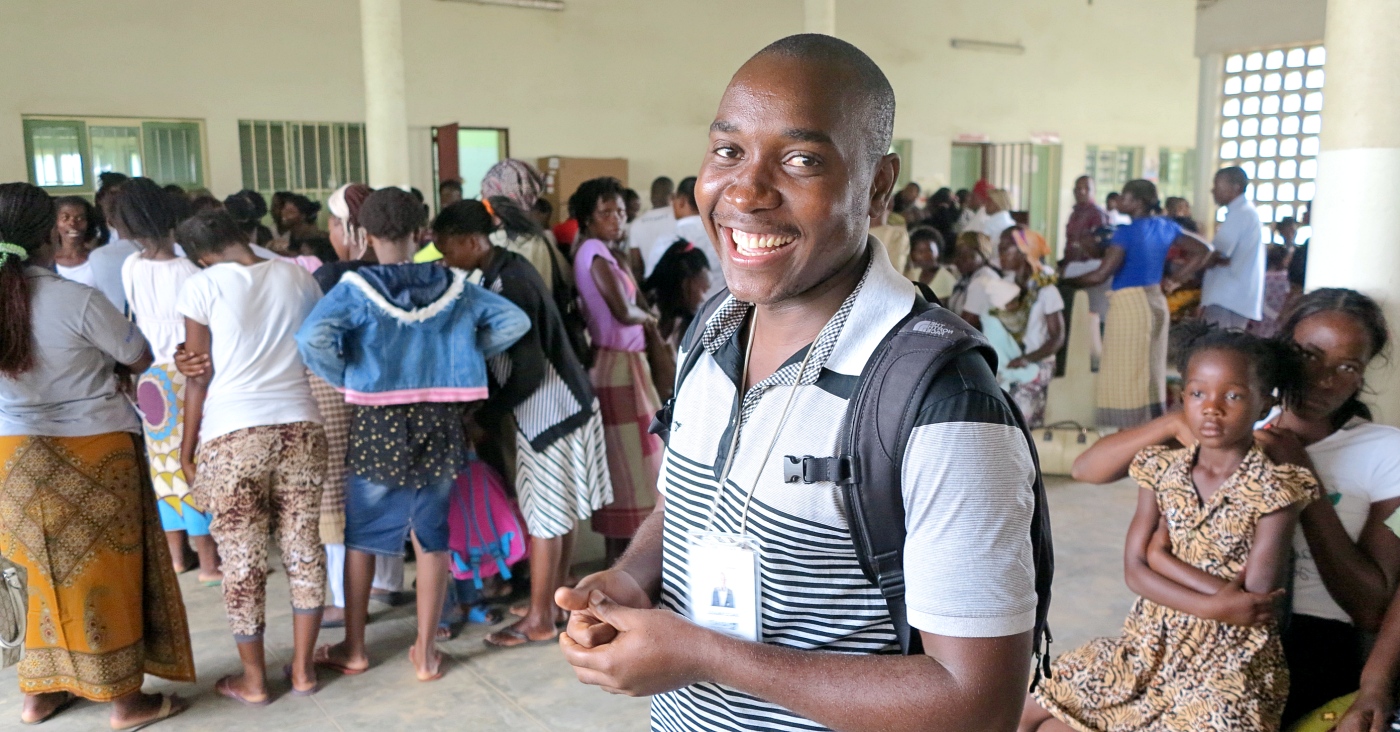
Our Impact at a Glance
Throughout 2021, Namati and our partners in six countries supported affected communities to remedy injustices and bring about changes to entire systems.
25,000+
PEOPLE SUPPORTED TO KNOW, USE, AND SHAPE THE LAW
300,000+
PEOPLE WHO BENEFITTED DIRECTLY FROM REMEDIES SECURED
MILLIONS
PEOPLE POSITIVELY AFFECTED BY CHANGES TO LAWS AND SYSTEMS
The Legal Empowerment Network, which Namati convenes, grew to 2,800+ groups from 170 countries. Together, we drove our movement for justice forward by fostering deep learning among members across borders, and by co-launching the Legal Empowerment Fund, with the goal of investing $100 million in grassroots justice efforts worldwide.
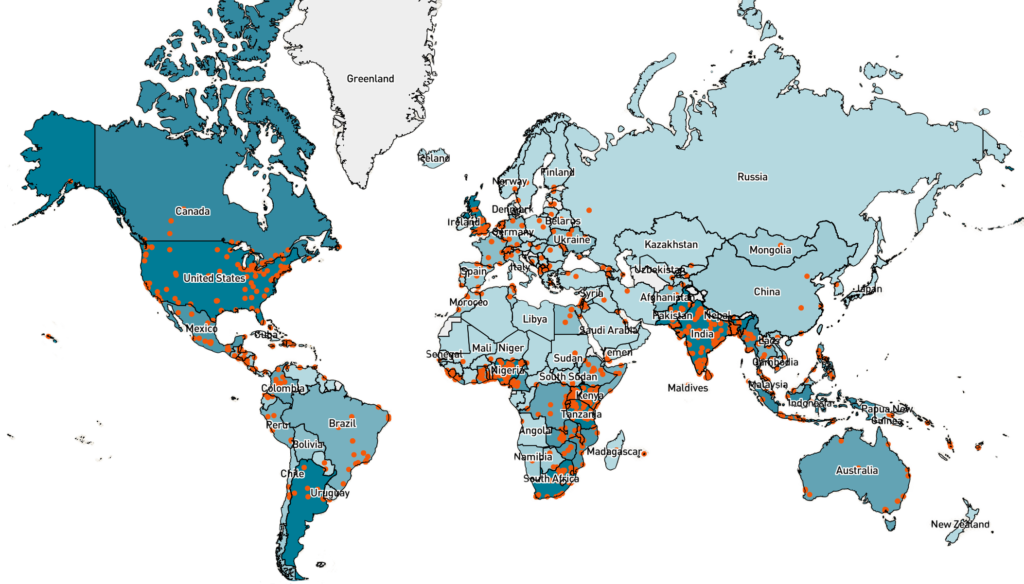
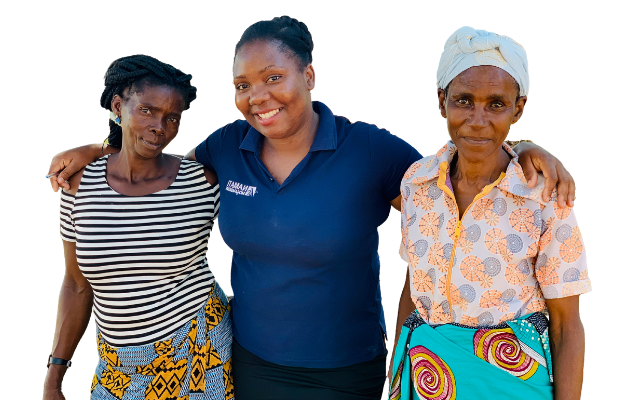
How
Do We
Create
Impact?
Take a Deeper Look
Namati, our members, our partners, and the communities we serve are working to achieve transformative impact in six countries and grow the Legal Empowerment Network into a powerful movement for justice. Learn about the progress we made in 2021 by exploring the sections below.
Land & Environmental Justice
Myanmar
Thank you to our supporters for joining us in advancing social and environment justice across the globe.

